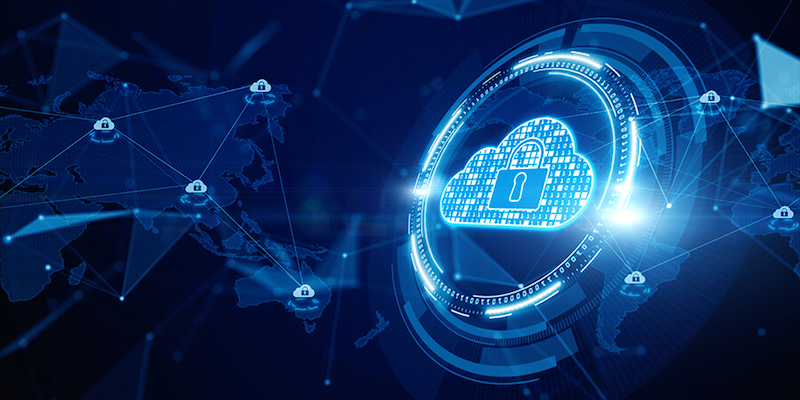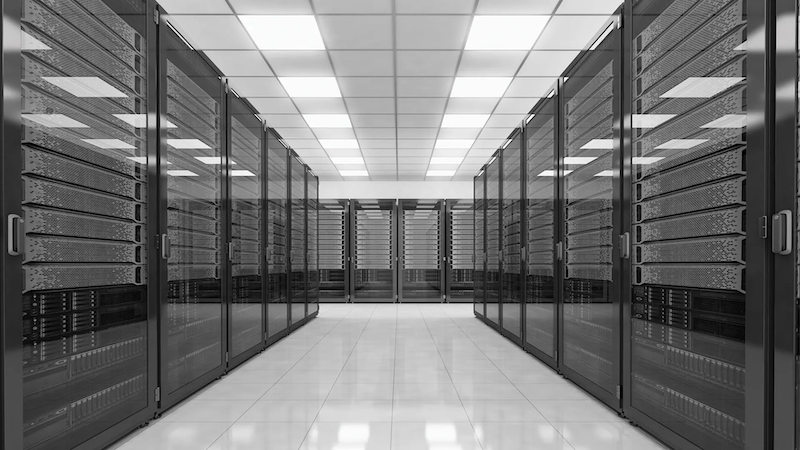Are you thinking about how to keep your digital information safe in today's digital age? With more people using cloud computing, it's crucial to understand the differences between these two types of security.
Cloud security focuses on protecting data, applications, and services stored in the cloud, making sure both providers and users follow best practices. On the other hand, cybersecurity covers a wider area, protecting networks, systems, and data across all digital platforms.
In this blog, we will explore the key differences between cloud security and cybersecurity, helping you understand how to keep your digital information safe.
If you are looking for security options for your organisation, always look for cyber security services. Cyber security encompasses all risks in an organisation, not just risks in cloud systems.
What does Radium Managed Cyber Security include?
- Vulnerability management - we monitor all the devices on your network. Keeping all software and hardware up to date.
- We get alerted in the event of a risk - then we go deal with it. We manage all alerted threats to your organisation so you don't spend time tracking issues.
- We actively work on your cyber security every month. Using the Microsoft secure score as a benchmark we consistently work to improve this score.
- Regular simulated phishing attacks to track user behaviours.
- Annual cyber awareness training.
- Annual security audit & penetration testing.
- And lots more…..
What is Cybersecurity and How Does it Work?
Cybersecurity is about keeping computers, servers, mobile devices, electronic systems, networks, and data safe from attacks. It uses various methods to defend against threats like viruses, phishing, ransomware, and hacking. Cybersecurity keeps information private, accurate, and available when needed.
Cybersecurity works through several important steps. It starts with spotting threats by watching network traffic and system activities closely. Then, it uses tools like firewalls and antivirus software to prevent attacks.
Controlling access by using strong passwords and two-step verification helps protect sensitive information. Keeping software updated and teaching users about security best practices also play a key role in defending against digital threats.

What is Cybersecurity and How Does it Work?
Cloud security is about protecting data, applications, and services stored in the cloud. As more people and businesses use cloud services, keeping these environments secure is very important. Cloud security involves a mix of rules, tools, and controls to protect cloud-based systems from threats.
Data protection in the cloud is achieved by encrypting information when it's stored and when it's being sent. Managing who can access cloud resources is done with tools like two-step verification and role-based permissions. Ensuring cloud services meet industry standards and laws involves regular checks and rules.
Constantly monitoring for security issues and having a plan to respond quickly to any problems helps keep cloud services safe and reliable.
What's the Difference Between Cloud Security and Cybersecurity?
Understanding the differences between cloud security and cybersecurity is crucial for effectively protecting digital assets. Each has its own unique focus, challenges, and strategies.
Focus & Scope
Cloud security focuses specifically on protecting data, applications, and services hosted in the cloud. It involves securing cloud environments and ensuring that data stored in the cloud is safe from breaches and unauthorised access.
Cybersecurity has a broader scope, covering all aspects of protecting computers, networks, and data from various types of cyber threats, not limited to cloud environments.
Threats and Challenges
Cloud security's common threats include data breaches, account hijacking, and insecure APIs. Cloud environments face unique challenges due to their shared and remote nature.
Cybersecurity deals with a wide range of threats, such as malware, phishing attacks, and ransomware. It must address the security of entire networks and systems, both online and offline.
Security Measures
Cloud security measures include encryption, identity management, access controls, and compliance with regulations. Regular audits and monitoring are crucial to maintaining security.
Cybersecurity measures include firewalls, antivirus software, intrusion detection systems, and regular system updates. Employee training and awareness are also critical components.
Compliance and Governance
Cloud security ensures compliance with industry standards and regulations is important. This involves regular checks and adhering to data protection laws specific to cloud storage.
Cybersecurity compliance involves broader regulations, covering data protection and privacy across all digital platforms. It includes measures like GDPR and other international standards.
Tools and Technologies
Cloud security utilises cloud-specific tools such as cloud access security brokers (CASBs), cloud security posture management (CSPM), and encryption services customised for cloud environments.
Cybersecurity uses a wide array of tools, including firewalls, antivirus programmes, intrusion prevention systems (IPS), and security information and event management (SIEM) systems.
Best Practices
Cloud security follows best practices like using strong access controls, regular security audits, encryption, and compliance with cloud service provider guidelines.
Cybersecurity implements best practices such as keeping software updated, educating users on security awareness, using strong passwords, and employing multi-factor authentication.
Scalability and Flexibility
Cloud security offers greater scalability and flexibility, allowing organisations to quickly adjust security measures based on changing needs and threats in the cloud environment.
Cybersecurity's scalability can be more challenging, as it requires expanding internal resources and infrastructure. Adjustments may take longer and involve more complexity.

Conclusion
While cloud security focuses on protecting data, applications, and services in the cloud, cybersecurity covers a broader range of threats across all digital platforms. Understanding these differences is crucial for implementing effective security measures customised to each environment.
By recognising the unique challenges and best practices of both cloud security and cybersecurity, you can better protect your digital assets and ensure comprehensive protection.
Ready to enhance your cybersecurity strategy and protect your cloud environments? Contact Radium today to learn how our expert solutions can help you stay secure and resilient against cyber threats.
Visit our website or call us now to get started!



